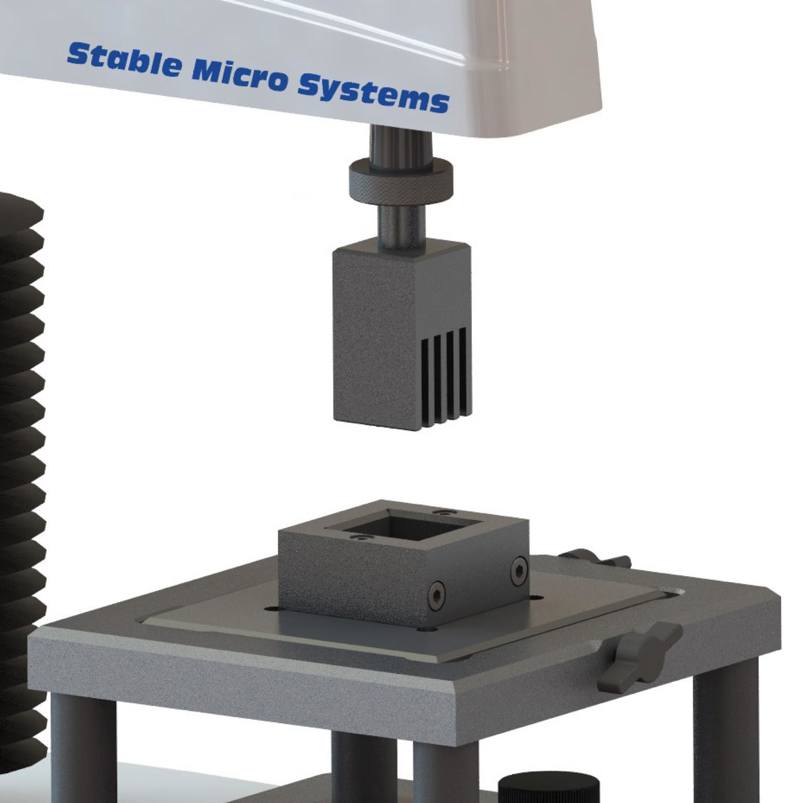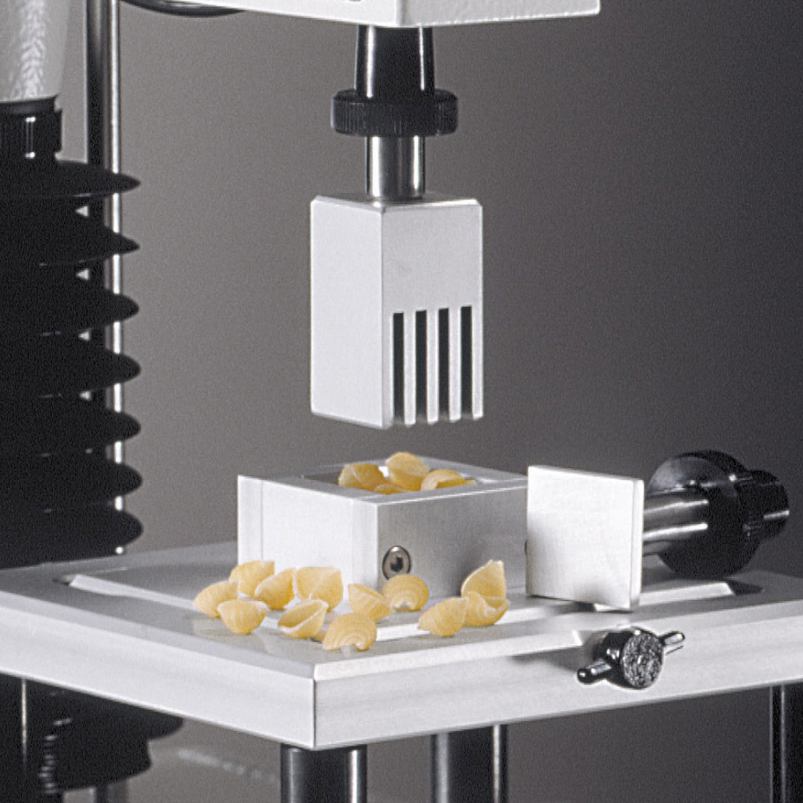Product overview
The Miniature Kramer/Ottawa Cell is particularly suited to reduce the force of bulk shearing/compression of multi particle products or non-uniform products. A 5-headed blade or compression platen can be attached to the arm of the Texture Analyser depending upon whether a shearing or bulk compression/extrusion test is required. Whilst the Kramer Shear Cell – 5 bladed, Kramer Shear Cell – 10 bladed or Ottawa Cell allow the testing of a larger sample size and therefore can have the advantage of testing using an averaging effect which is advantageous for the repeatable testing of highly non-uniform products, the drawback is often that this type of test commonly requires a high force load cell, e.g. 500kg, and therefore lends itself to a TA.HDplusC Texture Analyser application. Reducing the volume of this mini rig subsequently reduces the magnitude of the forces produced during the test which makes the rig more suitable for use with the single column Texture Analysers.
A number of pieces or weight of sample is sheared ‘in bulk’ and the result is an average of the forces required to cut through the sample. The area under the curve is usually calculated and termed the ‘work of shear’ – a larger value indicating a firmer or tougher sample.
How does the Miniature Kramer/Ottawa Cell work?
Ideal sample form
Sample pieces that are small but too variable from piece to piece to test repeatably individually.
Benefits and limitations
- This attachment is suited to reduce the force of bulk shearing/compression. Reducing the volume of this mini rig subsequently reduces the magnitude of the forces produced during the test which makes the rig more suitable for use with single column Texture Analysers
Technical information
Installation
Full installation instructions are provided within the Education Zone of the latest Exponent/Connect software version and on the technical information sheet accompanying this product.
Chemical compatibility
Stable Micro Systems probes and attachments are commonly made from four materials: anodised aluminium (AA6082 T6), stainless steel (316 T), Delrin (acetyl copolymer) and Perspex (polycarbonate).
In general use, probes and attachments made from these materials will be suitable for testing food products and inert non-food materials.
The four materials listed above are not universally resistant to all types of chemicals and as such the compatibility of the probe/attachment material with the product (to be tested) must be established to prevent damage to the probes and attachments. If the compatibility of the product with the probe is unknown to the customer then the chemical information about the product (Material Safety Data Sheet or Product Data Sheet) should be submitted to Stable Micro Systems. Stable Micro Systems will then assess the suitability of the probe/attachment material for use with the product and advise accordingly. If this advice is not sought then Stable Micro Systems will not accept liability for probes/attachments damaged by chemical attack from the product being tested.
Cleaning and maintenance
All probes and attachments may be cleaned in warm (or hand hot) water using a mild detergent. A soft brush may be used but abrasive cleaning aids should be avoided. Stable Micro Systems products should not be microwaved or cleaned in a dishwasher.
Screw threads should be lightly lubricated after drying using a light lubricant, e.g. petroleum jelly, mineral oil. This will aid the fitting and unscrewing of the item. Each component of a probe or attachment should be wrapped separately when stored, to avoid scratching or chipping. This will safeguard against any unnecessary damage to the accessory.
Troubleshooting
Blades can be difficult to align in blade guides and slots. Check that friction is not being measured by performing a ‘Blank’ test using a Button trigger.



